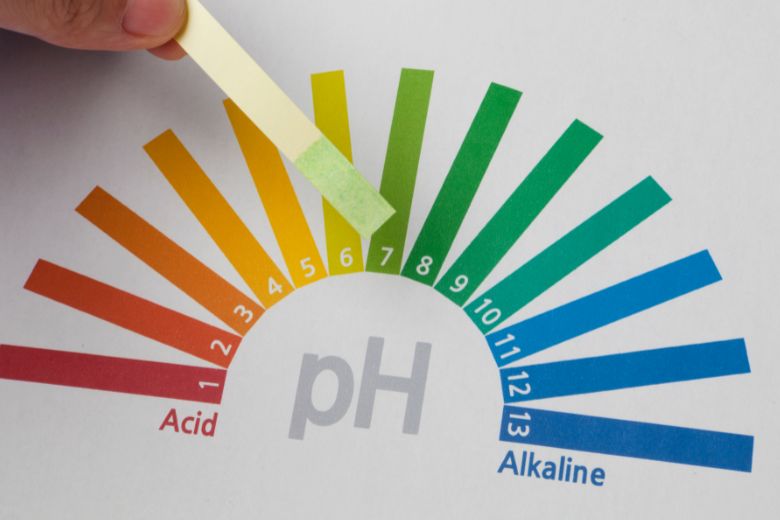Are Blueberries Acidic or Alkaline
Blueberries are small, vibrant berries that are widely loved for their taste and health benefits. They are a popular ingredient in various dishes and have gained attention for their potential positive effects on overall well-being.
In this article, we will explore whether blueberries lean more towards acidity or alkalinity and uncover the truth behind this common question.
What Determines the Acidity or Alkalinity of Blueberries?
To understand the acidity or alkalinity of blueberries, we need to look at the factors that influence their pH level. The pH scale is a measurement of acidity and alkalinity, ranging from 0 to 14. A pH of 7 is considered neutral, below 7 is acidic, and above 7 is alkaline. In the case of blueberries, several factors contribute to their overall pH level.
pH Level of Blueberries
Blueberries generally fall within a mildly acidic range on the pH scale. The average pH level of blueberries is around 3.5 to 3.8, which is slightly acidic. However, it’s important to note that the pH level can vary slightly depending on the specific variety of blueberries and their growing conditions.
Nutritional Value of Blueberries
Aside from their pH level, blueberries boast an impressive nutritional profile. They are rich in vitamins, especially vitamin C and vitamin K, and contain beneficial antioxidants that help combat free radicals in the body. Additionally, blueberries are a great source of dietary fiber, making them a valuable addition to a healthy diet.
Effects of Blueberries on the Body’s pH Balance
While blueberries may be acidic in nature, their consumption does not significantly impact the body’s overall pH balance. The human body has robust mechanisms to regulate its pH levels, and dietary factors like blueberries have a minimal effect on this delicate balance. Therefore, enjoying blueberries as part of a well-rounded diet is unlikely to disrupt the body’s pH equilibrium.
Potential Health Benefits of Blueberries
Blueberries have garnered attention for their potential health benefits. Scientific studies suggest that regular consumption of blueberries may contribute to improved cognitive function, cardiovascular health, and even have anti-inflammatory properties. However, it’s important to note that further research is still needed to establish definitive causal relationships between blueberries and these health benefits.
Culinary Uses of Blueberries
Blueberries offer a versatile and delicious addition to various culinary creations. From mouthwatering desserts like blueberry pies and muffins to refreshing smoothies and vibrant salads, there are countless ways to incorporate blueberries into your meals. Their natural sweetness and vibrant color make them a popular choice among both amateur and professional chefs.
Growing Blueberries at Home
If you’re interested in cultivating your own blueberries, it’s entirely possible to grow them at home. Blueberry plants require specific soil conditions, adequate sunlight, and regular watering. With proper care and attention, you can enjoy the satisfaction of harvesting fresh blueberries from your own garden or container.
Blueberries and the Environment
As the demand for blueberries continues to grow, it’s crucial to consider their environmental impact. Sustainable farming practices, such as integrated pest management and water conservation techniques, are being adopted within the blueberry industry. These practices aim to minimize negative effects on the environment while ensuring the production of high-quality blueberries.
Blueberries: Acidic or Alkaline? The Verdict
In conclusion, blueberries have a mildly acidic pH level, typically ranging from 3.5 to 3.8. However, the acidity of blueberries should not be a cause for concern, as it does not significantly impact the body’s pH balance. Blueberries offer an array of health benefits, are versatile in the kitchen, and can be enjoyed as part of a balanced diet.
FAQs
- Are blueberries suitable for individuals with acid reflux? Blueberries are generally considered safe for individuals with acid reflux. However, each person’s tolerance may vary, so it’s advisable to monitor your own symptoms and consult a healthcare professional if needed.
- Can blueberries help with weight loss? Blueberries are low in calories and packed with fiber, making them a satisfying snack for those aiming for weight loss. However, it’s important to maintain a balanced diet and exercise regularly for effective weight management.
- Are there any potential side effects of consuming too many blueberries? While blueberries are nutritious, consuming excessive amounts may lead to gastrointestinal discomfort or diarrhea due to their fiber content. Moderation is key when incorporating blueberries into your diet.
- Can blueberries be included in a low-carb diet? Blueberries are relatively low in carbohydrates compared to some other fruits. However, if you are following a strict low-carb diet, it’s essential to consider your overall daily carbohydrate intake and consult a healthcare professional for personalized advice.
- Are frozen blueberries as nutritious as fresh ones? Frozen blueberries retain most of their nutritional value, including vitamins and antioxidants. They can be a convenient and cost-effective option when fresh blueberries are not in season. Just ensure they are properly stored and thawed before use
Conclusion
Blueberries, with their delightful taste and impressive nutritional composition, have rightfully earned their place as a beloved fruit. Whether you enjoy them in a bowl of yogurt, a homemade pie, or simply as a healthy snack, incorporating blueberries into your diet can contribute to overall wellness. Embrace the vibrant goodness of blueberries and savor the benefits they bring.







